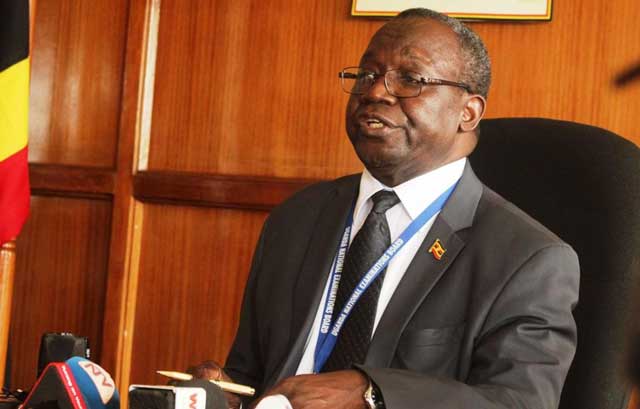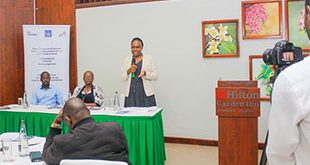
KAMPALA, UGANDA | THE INDEPENDENT | The Uganda National Examinations Board (UNEB) has released guidelines for students intending to repeat the Uganda Certificate of Education (UCE) this year and for private adult (mature-age entry) candidates under the revised lower secondary curriculum.
According to the guidelines, students who sat for the UCE under the new curriculum and failed to obtain a certificate—as well as those wishing to repeat voluntarily —will only be allowed to re-sit the exams if they have complete Continuous Assessment (CA) scores and project work for both Senior Three (S.3) and Senior Four (S.4).
“Those who wish to repeat must have submitted complete CA scores for S.3 and S.4 in all subjects taken and must also have completed the required project work,” UNEB stated in a document addressed to all secondary school headteachers.
The announcement brings long-awaited clarity for over 6,900 learners who failed to attain the UCE certificate in 2024 and were left in uncertainty. Since the release of results two months ago, many of these students, their parents, and schools have been in limbo, with no clear policy on whether such candidates could repeat, what assessments would count, or how they could re-register under the new system.
According to data from the Uganda National Examinations Board (UNEB), the affected learners failed to attain at least a grade D in one or more subjects, which automatically disqualified them from receiving the UCE certificate. Under the old curriculum, such students would have been classified under Division 9—an indication of outright failure.
Traditionally, these learners would be advised to retake the examination. However, when the 2024 UCE results were released, UNEB and Ministry of Education officials were unable to provide immediate guidance on the fate of those who had failed under the new curriculum.
At the time, Dr Kedrace Turyagyenda, the Permanent Secretary of the Ministry of Education, indicated that the ministry, together with UNEB and the National Curriculum Development Centre (NCDC), would convene to provide direction on the matter.
This lack of clarity exposed yet another policy gap in the implementation of the new curriculum, which was rolled out in 2020 without a pilot phase. It followed a similar scenario from the previous year, when questions were raised about the fate of learners who had failed the final UCE exams administered under the old curriculum in 2023.
In response, the ministry hastily introduced a transitional examination to give those candidates one last opportunity. Even then, at least 1,629 learners failed to meet the requirements for certification. Meanwhile, in addition to the guidelines for repeat candidates, UNEB has also issued conditions for mature-age or private adult candidates under the new curriculum.
Previously, individuals who had not studied in the formal secondary school system—but wished to sit for the UCE—were allowed to register and take the examination. This window is also said to have been used by other special categories of learners, such as deaf students who had failed Primary Leaving Examinations (PLE), to gain access to UCE certification.
However, the new curriculum introduced uncertainties regarding the eligibility of such candidates, as it placed more emphasis on school-based continuous assessment and project work. Jennifer Kalule, the UNEB spokesperson, clarifying on this category, said that under the new curriculum, individuals seeking to enroll through the mature age entry scheme must have at least enrolled in Senior Three.
“The new curriculum requires that to sit for the UCE, a candidate must have continuous assessment and project scores spanning two years, specifically from Senior Three and Senior Four. This also applies to mature age candidates, meaning they must attend classes on a daily basis for the full two years,” Kalule explained.
In the latest guidelines, UNEB also noted that only Ugandan citizens aged 20 years and above will be eligible to register under the mature-age or private adult category. Additionally, such candidates must obtain written permission from the UNEB Executive Director before registration.
“This condition applies to Ugandan citizens only,” the board emphasized. “Requests must be made in writing and accompanied by authentic documentary proof of age.” UNEB also warned against the use of forged documents such as birth certificates or national IDs, noting that offenders risk disqualification and potential legal consequences.
However, the new directive leaves questions unanswered about the eligibility of refugees and other non-citizens who may wish to sit for the UCE as private adult candidates. Meanwhile, UNEB has emphasized that all candidates—whether repeaters or first-time registrants—must have submitted their Continuous Assessment records and project scores for Senior Three (S.3) to qualify for registration for the 2025 UCE. Candidates were also advised not to change their names or optional subjects at the Senior Four (S.4) registration stage.
For the 2025 Uganda Advanced Certificate of Education (UACE) examinations, only candidates who passed the Uganda Certificate of Education (UCE) in 2023 or earlier, or those with an equivalent qualification, will be eligible to register, provided they have completed an Advanced Level course of at least two years. According to the circular issued by the Uganda National Examinations Board (UNEB), registration for both UCE and UACE will run from April 1 to July 31, 2025. Normal registration will close on May 31.
Candidates who register between June 1 and June 30 will be required to pay a 50 percent surcharge, while those registering between July 1 and July 31 will incur a 100 percent surcharge. After this period, registration will be officially closed. According to the new circular, each centre is required to register a minimum of 10 candidates at each level. Centres that fall below this threshold must seek written permission from the UNEB Executive Director to register their learners as private candidates under another approved centre.
Public halls abolished
Additionally, no centre is allowed to register candidates beyond its officially assigned capacity unless the centre has undergone re-validation and capacity expansion. This rule also applies to schools operating under the Universal Secondary Education (USE) and Universal Post-O-Level Education and Training (UPOLET) programs. For schools with annexes, UNEB emphasized that the main centre must first register up to its full capacity, set at 499 candidates, before any candidates can be registered at the annex.
“With the advent of the New Lower Secondary Curriculum (NLSC), no existing public halls shall be allowed to register UCE candidates for 2025. Schools are encouraged to apply for their centre numbers,” the board added. Furthermore, centres are strictly prohibited from registering candidates who have not been studying at their own school unless they have received express permission from the Executive Director.
****
URN
 The Independent Uganda: You get the Truth we Pay the Price
The Independent Uganda: You get the Truth we Pay the Price




Hello uneb, I studied up to Senior three and went out of school due to financial situation, in 2019, but I want to study again, where am I supposed to start at from
Hello UNEB, I studied up to Senior three and dropped out due to financial situation in 2019, but now I want to know go back and resume, where am supposed to start from?
Good chance